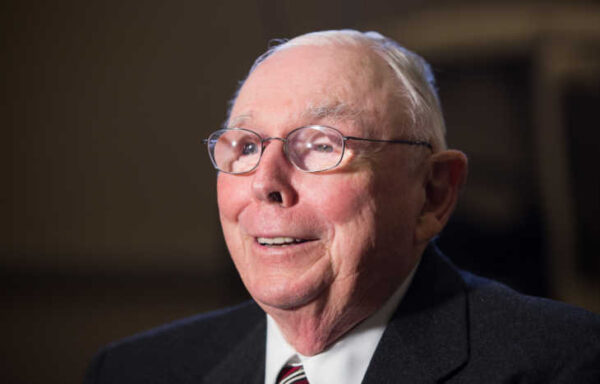The Connection Between Self-Compassion… and Investment Success
- As investors, we’re sure to experience losses at some point. Some of us may even dwell on them and fall into a cycle of self-criticism.
- Today, Joel Wade explains why it’s important that we show ourselves compassion – and how that practice can help our future wealth building.
Editor’s Note: In today’s essay, contributing writer Joel Wade offers our readers a valuable lesson… for investing and life in general. For those who aren’t already familiar with Joel, he’s a highly experienced life coach, therapist, author and teacher – giving him unique insights into investor psychology and the journey toward a rich life.
– Christina Grieves, Senior Managing Editor
My client was distraught.
He had invested a million dollars and lost a quarter of that nearly overnight in a penny stock scam.
He was desperately trying to find a way to get it back. He felt awful. He knew he had made a terrible mistake, and he wanted to correct it right away and eliminate the losses.
The problem was, the value that he had counted on, what he had taken for granted as a solid monetary figure, was now gone – and there was no way to undo what had happened.
The feeling from such an event is generally shock and loss, and the danger is that those feelings can skew our perceptions, our judgment and our decisions.
But there’s another emotion that can cause even more trouble: shame.
It’s inevitable that when we invest, we’ll experience losses along the way. And, especially for novice investors, shame often follows.
One of the most important skills to learn in any endeavor – whether business, sports, performing or investing – is to get back up and carry on when you stumble.
That kind of resilience is essential to persevere and succeed at anything – but especially investing, an area that delivers occasional hard knocks to even the savviest participants.
Fortunately, the resilience you need to prosper is something you can develop. And it starts with this realization…
If you want to improve anything, if you want to change things for the better, be compassionate with yourself.
Think of the people who have had the greatest positive influence on you. Did they spend a lot of time nagging, berating, insulting or shaming you? I suspect not.
Shame has its place. When we do something that violates our values, one of the natural emotions we feel is shame.
But once that feedback is received and we have taken the steps to correct what we feel ashamed of, that emotion has done its job.
If we continue to berate ourselves about the past – after we’ve taken the steps to make it right – we actually undermine our ability to establish better habits.
For example, researchers have found that, among alcoholics who have become sober, those who continue to actively feel ashamed, criticize and castigate themselves for their previous behavior are the ones who go back to drinking.
Those who have compassion for their previous behavior are the ones who tend to stay sober.
The important thing, of course, is to change our faulty behavior. Just having compassion for our human failings without taking corrective action keeps us on a steady course of disappointment.
This requires a perspective based on realism.
For example, I once heard Alexander Green say, “I know I’ll never be done making investment mistakes. But I am done making the foolish ones.”
He talks often about the egregious errors he made more than three decades ago in his early years as an investment analyst and money manager.
He’s never forgotten those mistakes. But he doesn’t dwell on them.
All the great investors – Warren Buffett, Peter Lynch, John Templeton and others – made numerous missteps in their careers. Yet those mistakes never defined them.
Self-compassion helps us weather the occasional failure. It has to do with accepting a degree of self-doubt, some negative self-evaluations and a bit of adversity as part of life.
I helped my client understand this, and he was able to think clearly and make improvements in his portfolio.
Over time, he recovered his loss and then some. Because he was no longer weighed down by the intense emotion of shame, he’s done extremely well since.
He had other opportunities open up that he may have never seen had he been mired in crippling self-criticism.
Shame and regret drain our willpower. Yet willpower is exactly what we need to make enduring, positive changes.
Both as investors… and as human beings.





